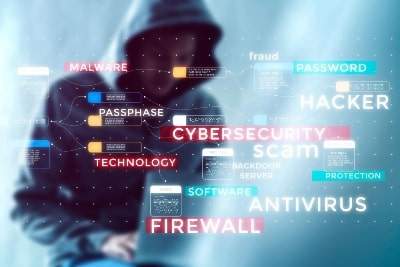What is VPN and How It Protects from Cyber Threats?

In today’s digital age, cybersecurity has become a major concern for individuals and businesses alike. With the increasing number of cyber threats, it is essential to protect your online activity from prying eyes. One of the most effective ways to do this is by using a VPN. But what is VPN, and how does it protect you from cyber threats? In this article, we will delve deeper into the world of VPN and explain its benefits.
What is VPN?
VPN stands for Virtual Private Network. It is a technology that allows you to create a secure and encrypted connection over the internet. By using a VPN, your internet connection is redirected through a remote server operated by the VPN provider. This connection makes it difficult for anyone to intercept or access your online activity.
How does VPN work?
When you connect to the internet through a VPN, your device creates a secure and encrypted connection to the VPN server. The VPN server then acts as an intermediary between your device and the internet. This means that any website or online service you access sees the VPN server’s IP address instead of your device’s IP address.
The encryption used by the VPN ensures that your online activity is hidden from anyone who might try to intercept it. This is particularly useful when using public Wi-Fi networks, which are often unsecured and vulnerable to cyber threats.
Benefits of using VPN
Using a VPN offers several benefits, including:
- Security
One of the primary benefits of using a VPN is security. By encrypting your online activity, a VPN ensures that your data is protected from cyber threats such as hackers, identity theft, and phishing attacks. This is particularly important if you use public Wi-Fi networks, which are often unsecured and vulnerable to cyber threats.
- Privacy
Another benefit of using a VPN is privacy. By hiding your IP address and online activity, a VPN ensures that your online activity is private and cannot be tracked. This is particularly important if you want to keep your online activity private from your internet service provider (ISP) or government agencies.
- Access to geo-restricted content
Many online services, such as streaming services, are restricted to certain geographic regions. By using a VPN, you can bypass these restrictions and access geo-restricted content from anywhere in the world.
- Improved performance
In some cases, using a VPN can improve your internet performance. This is because a VPN can help to reduce internet congestion and improve network speeds. This is particularly useful if you live in an area with slow internet speeds.
How VPN protects from cyber threats?
A VPN protects you from cyber threats in several ways, including:
- Encryption
By encrypting your online activity, a VPN ensures that your data is protected from hackers and other cyber threats. This means that even if someone intercepts your online activity, they will not be able to read or access your data.
- IP address masking
By masking your IP address, a VPN ensures that your online activity is hidden from anyone who might try to track it. This means that your online activity is private and cannot be used to target you with cyber threats such as phishing attacks.
- Wi-Fi security
Using a VPN on public Wi-Fi networks is particularly important because these networks are often unsecured and vulnerable to cyber threats. By using a VPN, you can ensure that your online activity is protected from anyone who might try to intercept it on a public Wi-Fi network.
- Malware protection
Some VPNs offer malware protection, which can help to protect your device from malware and other cyber threats. This is particularly useful if you frequently download files from the internet or use file-sharing services.
In conclusion, a VPN is an essential tool for protecting your online activity from cyber threats. By encrypting your online
activity, hiding your IP address, and offering other security features, a VPN ensures that your data is protected and your online activity is private. Additionally, a VPN can help you bypass geo-restrictions and improve your internet performance.
If you are considering using a VPN, there are several factors to consider. These include the VPN provider’s reputation, the number of servers and locations, the types of encryption used, and the level of customer support offered.
It is also important to note that while a VPN can provide excellent security and privacy, it is not a foolproof solution. It is still important to practice good online hygiene, such as using strong passwords, keeping your software up to date, and avoiding suspicious links and downloads.
In summary, a VPN is a powerful tool for protecting your online activity from cyber threats. By encrypting your data and hiding your IP address, a VPN ensures that your online activity is secure and private. If you are looking for a way to protect your online activity, a VPN is an excellent place to start.


